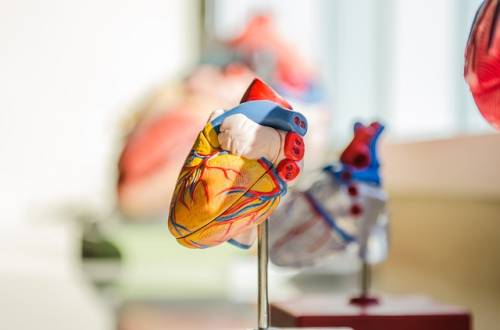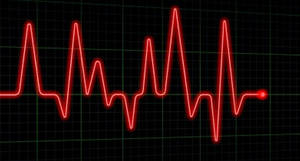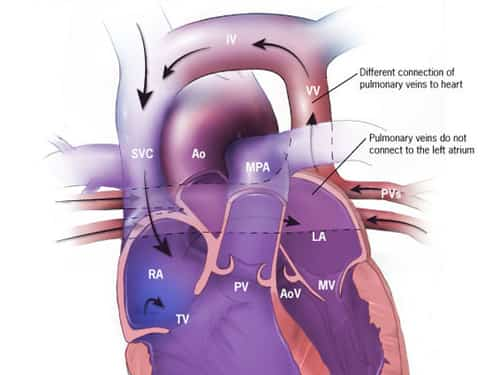An abnormal heart rate is when the number of heartbeats per minute deviates from the normal range. An abnormal heart rate may signal underlying health problems and should be dealt with promptly.
There are different types of abnormal heart rates that can occur. Bradycardia is when the heart beats too slowly, while tachycardia is when the heart beats too quickly. Other types of irregular heart rhythms include atrial fibrillation, ventricular fibrillation, and supraventricular tachycardia. It is important to identify these abnormal heart rates and seek medical attention to effectively manage and treat them.
Differentiating between bradycardia and tachycardia
Bradycardia and tachycardia are two different types of abnormal heart rates. Bradycardia refers to a heart rate that is slower than normal, usually below 60 beats per minute. On the other hand, tachycardia is characterized by a heart rate that is faster than normal, typically above 100 beats per minute. It is important to differentiate between these two conditions, as the treatment approaches for each may vary.
Exploring other types of irregular heart rhythms
Other types of irregular heart rhythms, also known as arrhythmias, include atrial flutter, atrial fibrillation, and ventricular fibrillation. Atrial flutter is characterized by a rapid but regular heart rate, while atrial fibrillation causes a rapid and irregular heart rate. Ventricular fibrillation is a life-threatening arrhythmia that involves chaotic, irregular electrical impulses in the heart. These abnormal heart rhythms can result in poor blood flow and increase the risk of complications such as stroke or heart failure.
Symptoms of Abnormal Heart Rates
Recognizing signs of abnormal heart rates is crucial for early detection and intervention.
Recognizing signs of abnormal heart rates
Recognizing signs of abnormal heart rates is crucial for early detection and intervention. Common symptoms include palpitations (the sensation of a racing or irregular heartbeat), lightheadedness, dizziness, chest pain or discomfort, shortness of breath, fatigue, and fainting.
Understanding the importance of early detection
Early detection of abnormal heart rates is crucial in order to prevent serious complications and potentially save lives. Recognizing the signs and symptoms of abnormal heart rates allows for prompt medical intervention, which can help identify and treat any underlying heart conditions.
Health Risks Associated with Abnormal Heart Rates
Abnormal heart rates can pose serious health risks. Prolonged periods of bradycardia (slow heart rate) can lead to lightheadedness, fainting, and even cardiac arrest.
Impact of abnormal heart rates on overall health
Abnormal heart rates can have a significant impact on overall health. Prolonged periods of bradycardia can lead to lightheadedness, fainting, and even cardiac arrest. Tachycardia, on the other hand, can strain the heart muscle, increasing the risk of heart failure or stroke. These conditions can greatly affect the quality of life and may even be life-threatening if left untreated. Early detection and appropriate treatment are essential for minimizing these risks and maintaining overall heart health.
Potential complications and risks
Prolonged periods of abnormal heart rates can lead to various complications and risks. In cases of bradycardia, the heart may not pump enough blood to meet the body’s needs, resulting in fainting, dizziness, or even cardiac arrest. On the other hand, tachycardia can strain the heart and increase the risk of heart failure or stroke.
Treatment Options for Abnormal Heart Rates
Treatment options for abnormal heart rates depend on the underlying cause and severity of the condition.
Medication, lifestyle changes, and medical procedures
To treat abnormal heart rates, medication is often prescribed. Beta-blockers, calcium channel blockers, and antiarrhythmic drugs help regulate heart rhythm. Lifestyle changes such as reducing stress, avoiding stimulants, and maintaining a healthy weight can also be beneficial.
Managing and controlling irregular heart rhythms
One of the primary goals in managing and controlling irregular heart rhythms is to effectively normalize the heart rate. This can be achieved through medication, lifestyle changes, and medical procedures. Medications like beta-blockers, calcium channel blockers, and antiarrhythmic drugs are commonly prescribed. Lifestyle modifications such as reducing stress, avoiding stimulants, and maintaining a healthy weight can also help regulate heart rhythm.
Prevention and Lifestyle Modifications
Prevention and lifestyle modifications play a crucial role in maintaining a healthy heart rate. To prevent abnormal heart rates, individuals should prioritize regular exercise, maintain a healthy weight, and follow a balanced diet low in saturated fats and sodium.
Tips for maintaining a healthy heart rate
Some tips for maintaining a healthy heart rate include:
- Regular exercise: Engage in moderate-intensity physical activity for at least 150 minutes per week.
- Healthy weight: Maintain a healthy weight through proper diet and exercise to reduce strain on the heart.
- Balanced diet: Follow a diet low in saturated fats and sodium, while incorporating fruits, vegetables, whole grains, and lean proteins.
- Avoid stimulants: Limit or avoid caffeine and tobacco, as they can increase heart rate.
- Regular check-ups: Schedule routine check-ups with healthcare professionals for early detection and intervention if necessary.
Promoting heart health through diet, exercise, and stress management
Promoting heart health involves adopting a balanced diet, engaging in regular exercise, and effectively managing stress.
A diet rich in fruits, vegetables, whole grains, and lean proteins can help maintain a healthy heart rate.
Regular physical activity, such as brisk walking or swimming, for at least 150 minutes per week can strengthen the heart and improve cardiovascular health.









